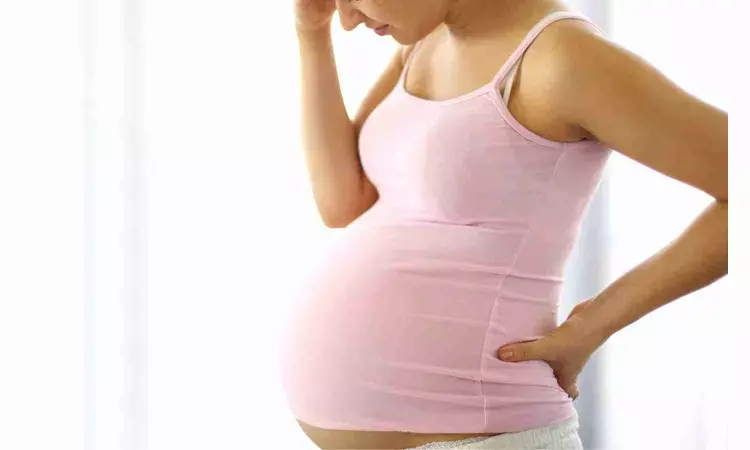- Home
- Medical news & Guidelines
- Anesthesiology
- Cardiology and CTVS
- Critical Care
- Dentistry
- Dermatology
- Diabetes and Endocrinology
- ENT
- Gastroenterology
- Medicine
- Nephrology
- Neurology
- Obstretics-Gynaecology
- Oncology
- Ophthalmology
- Orthopaedics
- Pediatrics-Neonatology
- Psychiatry
- Pulmonology
- Radiology
- Surgery
- Urology
- Laboratory Medicine
- Diet
- Nursing
- Paramedical
- Physiotherapy
- Health news
- Fact Check
- Bone Health Fact Check
- Brain Health Fact Check
- Cancer Related Fact Check
- Child Care Fact Check
- Dental and oral health fact check
- Diabetes and metabolic health fact check
- Diet and Nutrition Fact Check
- Eye and ENT Care Fact Check
- Fitness fact check
- Gut health fact check
- Heart health fact check
- Kidney health fact check
- Medical education fact check
- Men's health fact check
- Respiratory fact check
- Skin and hair care fact check
- Vaccine and Immunization fact check
- Women's health fact check
- AYUSH
- State News
- Andaman and Nicobar Islands
- Andhra Pradesh
- Arunachal Pradesh
- Assam
- Bihar
- Chandigarh
- Chattisgarh
- Dadra and Nagar Haveli
- Daman and Diu
- Delhi
- Goa
- Gujarat
- Haryana
- Himachal Pradesh
- Jammu & Kashmir
- Jharkhand
- Karnataka
- Kerala
- Ladakh
- Lakshadweep
- Madhya Pradesh
- Maharashtra
- Manipur
- Meghalaya
- Mizoram
- Nagaland
- Odisha
- Puducherry
- Punjab
- Rajasthan
- Sikkim
- Tamil Nadu
- Telangana
- Tripura
- Uttar Pradesh
- Uttrakhand
- West Bengal
- Medical Education
- Industry
Maternal stress during pregnancy could leave traces in placenta that could affect baby's development: Study

Maternal stress could leave epigenetic imprints on genes in the placenta associated with cortisol-a necessary hormone for foetal development-and this would affect the baby’s development from very early stages, as stated in a paper published in the journal European Neuropsychopharmacology. The study suggests that a mother’s emotional wellbeing during pregnancy is not only important for her, but could also influence the future health of her baby.
The study is led by Lourdes Fañanás, professor at the Faculty of Biology and the Institute of Biomedicine (IBUB) of the University of Barcelona. She is group leader of the Networking Biomedical Research Centre on Mental Health (CIBERSAM) area. The study is also led by Elisabeth Binder, from the Max Planck Institute of Psychiatry in Munich (Germany). The paper includes the collaboration of the Rare Diseases area Networking Biomedical Research Centre (CIBERER) and the experts Elisenda Eixarch and Fátima Crispi, who are also researchers at CIBERER and at the UB’s Faculty of Medicine and Health Sciences, BCNatal (IRSJD and Hospital Clínic - IDIBAPS).
The placenta is an essential organ during pregnancy, as it not only provides oxygen and nutrients to the foetus, but also responds to factors such as maternal stress and helps the foetus adapt to its environment. However, the mechanisms by which the placenta adjusts to these stressors and how it influences foetal development remain largely unexplored.
The research team observed that maternal stress may leave epigenetic marks on certain placental genes. Specifically, these marks do not modify the genetic structure, but they do alter its function. The study identified epigenetic changes in genes related to the regulation of cortisol, an essential hormone in the body’s response to stress.
Supporting women from the very first stages of pregnancy
This pilot study, funded by a CIBERSAM Intramural project, involved 45 healthy, first-time pregnant women. During pregnancy, their cortisol levels and depressive symptoms were measured and, after delivery, placentas were analysed. At seven weeks, the neurodevelopment of the babies was assessed using a specialized test (Brazelton’s NBAS).
The research team used an advanced sequencing technique that allows them to look at epigenetic changes in large areas of DNA and thus gain a very detailed view of the placental response to maternal stress. This method identified changes in key genes involved in cortisol regulation, such as HSD11B2, NR3C1 and FKBP5. The results suggest that maternal stress — especially in early pregnancy — can cause alterations in these genes, which could affect foetal development and the future health of the baby.
Águeda Castro, first author of the study and CIBERSAM researcher at the University of Barcelona, points out that “this study reinforces the importance of taking care of the mental health of mothers from the beginning of pregnancy, since stress could leave a biological imprint on the baby’s development through epigenetic mechanisms that we are just beginning to understand”.
IBUB selected this article as the best scientific publication of November 2024 for its innovative approach to prenatal and mental health. Although this is a pilot study, the results open the door to future research and possible interventions to support pregnant women in vulnerable situations from the earliest stages. While these findings need to be replicated in larger studies, this breakthrough underscores the importance of psychological care and emotional support during pregnancy, not only for the mother's well-being, but also for the long-term health of the baby.
Reference:
Agueda Castro-Quintas, Helena Palma-Gudiel, Elisenda Eixarch, Nerea San Martín González, Simone Röh, Susann Sauer, Monika Rex-Haffner, Jose Luis Monteserin-Garcia, Lorena de la Fuente-Tomás, Fatima Crispi, Maria Paz Garcia Portilla, Elisabeth B. Binder, Lourdes Fañanas, Placental epigenetic signatures of maternal distress in glucocorticoid-related genes and newborn outcomes: A study of Spanish primiparous women, https://doi.org/10.1016/j.euroneuro.2024.10.001.
Dr Kamal Kant Kohli-MBBS, DTCD- a chest specialist with more than 30 years of practice and a flair for writing clinical articles, Dr Kamal Kant Kohli joined Medical Dialogues as a Chief Editor of Medical News. Besides writing articles, as an editor, he proofreads and verifies all the medical content published on Medical Dialogues including those coming from journals, studies,medical conferences,guidelines etc. Email: drkohli@medicaldialogues.in. Contact no. 011-43720751


